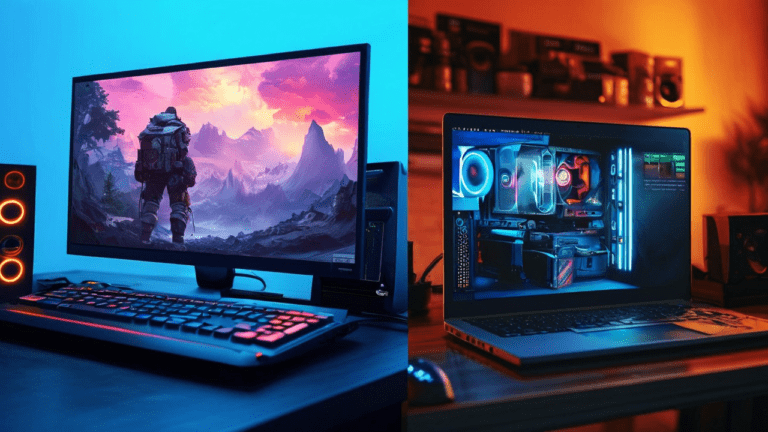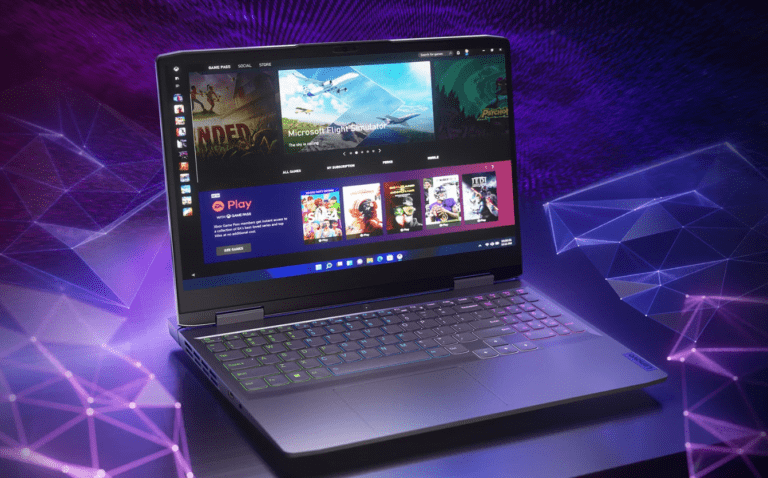When it comes to choosing between a gaming laptop vs desktop PC, the decision can be as intense as the games themselves. Whether you’re a casual gamer, a competitive eSports enthusiast, or someone who demands top-tier performance, the battle between these two gaming setups is real.
If you’re on the hunt for the ultimate gaming experience, you’ve probably found yourself caught between the choice of a gaming laptop vs desktop PC. Both have their strengths and weaknesses, and depending on your gaming needs, one might be better suited for you than the other. This guide is here to break down the top 5 differences that matter most, from portability to performance, so you can choose the gaming setup that’s perfect for you.
Let’s dive in!
1. Portability

Winner: Gaming Laptop
The first and most obvious difference is portability. If you’re someone who’s always on the move, a gaming laptop is your best bet. Laptops are designed to be compact, light, and easy to carry around, making them ideal for students, travelers, or anyone who doesn’t want to be tied to a desk.
- Laptop Advantage: All-in-one solution with built-in screen, keyboard, and battery.
- Desktop Challenge: Even with mini ITX systems, you’ll still need to lug around peripherals like a monitor and keyboard.
In contrast, a desktop PC is a bit like a tank—powerful but not exactly easy to move around. If you’re planning on gaming at your desk or setting up a dedicated gaming room, a desktop might be fine, but don’t expect to take it to a coffee shop anytime soon.
2. Performance
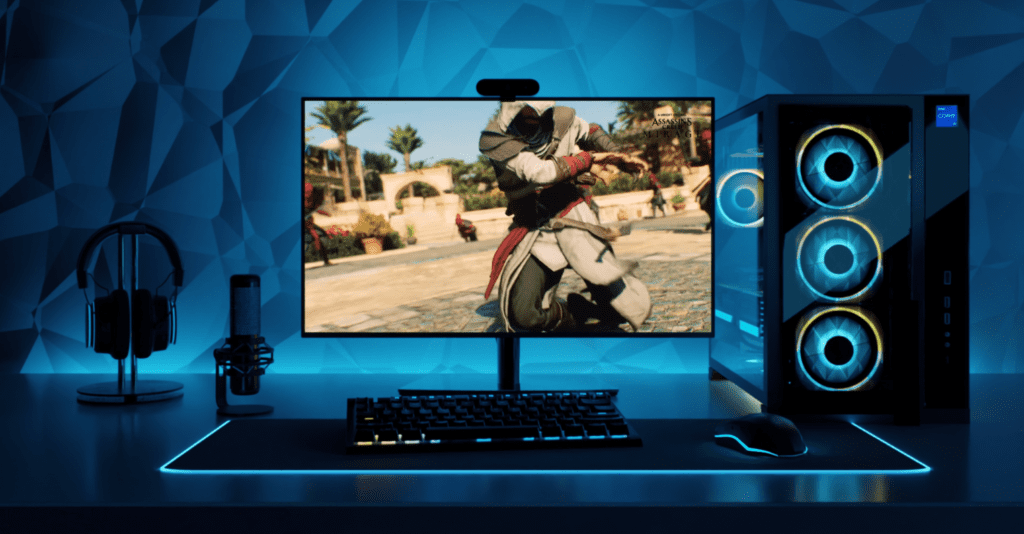
Winner: Desktop PC
When it comes to raw performance, the desktop PC takes the crown. Desktops have more space for powerful hardware and better cooling, which translates into higher performance, especially in demanding games. If you’re chasing those ultra-high frame rates or playing the latest AAA titles on max settings, a desktop PC can deliver.
- Desktop Advantage: Better cooling, more power, and the ability to house top-tier GPUs.
- Laptop Challenge: Limited by size, leading to less powerful cooling and, consequently, lower performance.
That said, modern gaming laptops have come a long way. A midrange laptop equipped with an Nvidia RTX 4060 or 4070 can still run most games smoothly at 1440p high settings. The gap in performance between laptop and desktop GPUs is shrinking, but if you’re a performance purist, the desktop is the way to go.
3. Upgrade Options
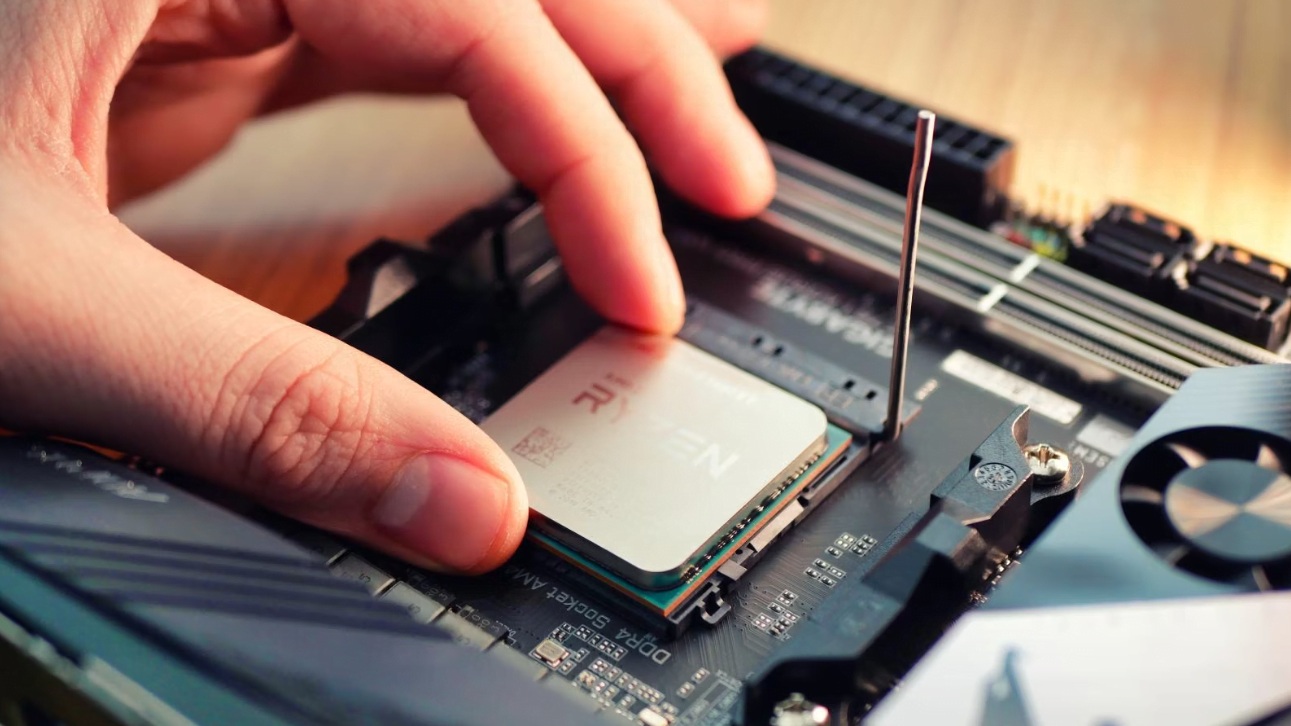
Winner: Desktop PC
One of the biggest advantages of a desktop PC is its upgradeability. You can swap out almost any component—CPU, GPU, RAM, storage, and more—whenever you need to. This modularity not only extends the life of your system but also allows you to keep up with the latest tech without needing to buy an entirely new machine.
- Desktop Advantage: Almost unlimited upgrade options, from RAM to GPUs.
- Laptop Challenge: Limited to upgrading RAM and storage, with most CPUs and GPUs being non-upgradable.
Gaming laptops, on the other hand, are much more restricted. Most of the time, you’re limited to upgrading the RAM and storage, and in some cases, even those are soldered in. This means that once your laptop’s hardware is outdated, you’re likely looking at buying a new machine altogether.
4. Price

Winner: It Depends
When it comes to price, things get a little more complicated. Gaming laptops tend to be more expensive upfront for similar specs compared to desktops, largely due to the engineering required to pack powerful components into a small, portable form factor.
- Laptop Advantage: Combines several components (like the screen and keyboard) into one package, which can save money.
- Desktop Advantage: Generally cheaper to build or upgrade over time, especially if you already own peripherals.
However, desktops can also get expensive, especially if you go for top-tier components. You might save money by building your own, but remember to factor in the cost of peripherals like a monitor, keyboard, and mouse.
Have a look at: Should I Build A PC in 2024? Laptop Gaming at its Peek
5. Hybrid Approach
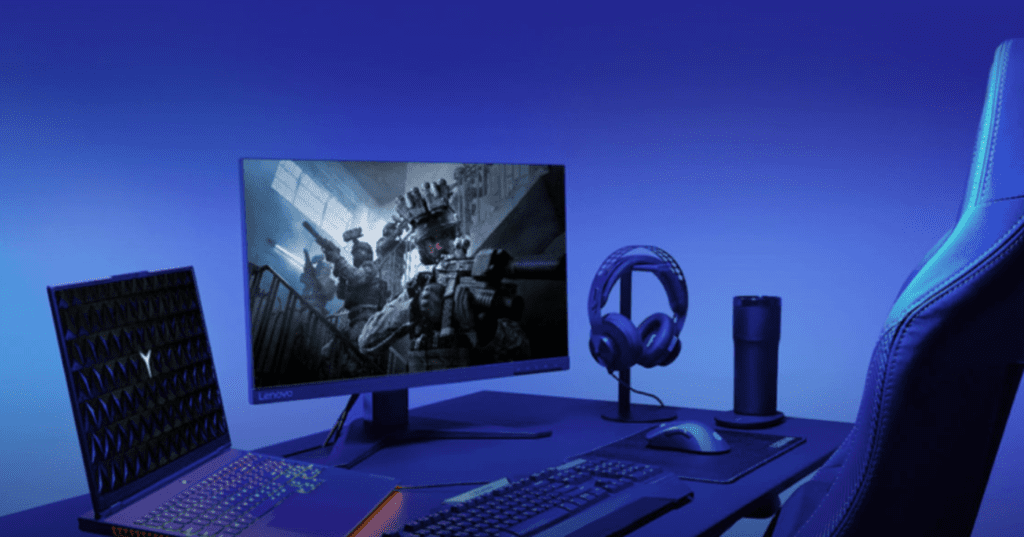
Winner: You!
For many gamers, the best option might actually be a hybrid approach—using a desktop at home for maximum performance and a more portable laptop for gaming on the go. This way, you get the best of both worlds without sacrificing too much in terms of performance or portability.
- Hybrid Advantage: Use a powerful desktop at home and a portable laptop on the go.
- Laptop/Thin and Light: If portability is your only concern and you don’t need a GPU, consider a thin and light laptop for better battery life and lower costs.
This hybrid setup lets you enjoy high-performance gaming at home while still having the freedom to game or work on the go with a lighter, more portable device.
Conclusion
Choosing between a gaming laptop vs desktop PC ultimately comes down to your lifestyle, needs, and preferences. If you prioritize portability and convenience, a gaming laptop is a great choice. On the other hand, if you’re after performance and the ability to upgrade over time, a desktop PC might be more up your alley. And for those who want a bit of both, a hybrid approach could be the perfect solution.
Whichever you choose, remember that both setups have their strengths and can offer incredible gaming experiences. Now that you know the Top 5 key differences, you’re better equipped to make the right choice for your gaming needs. Happy gaming!

